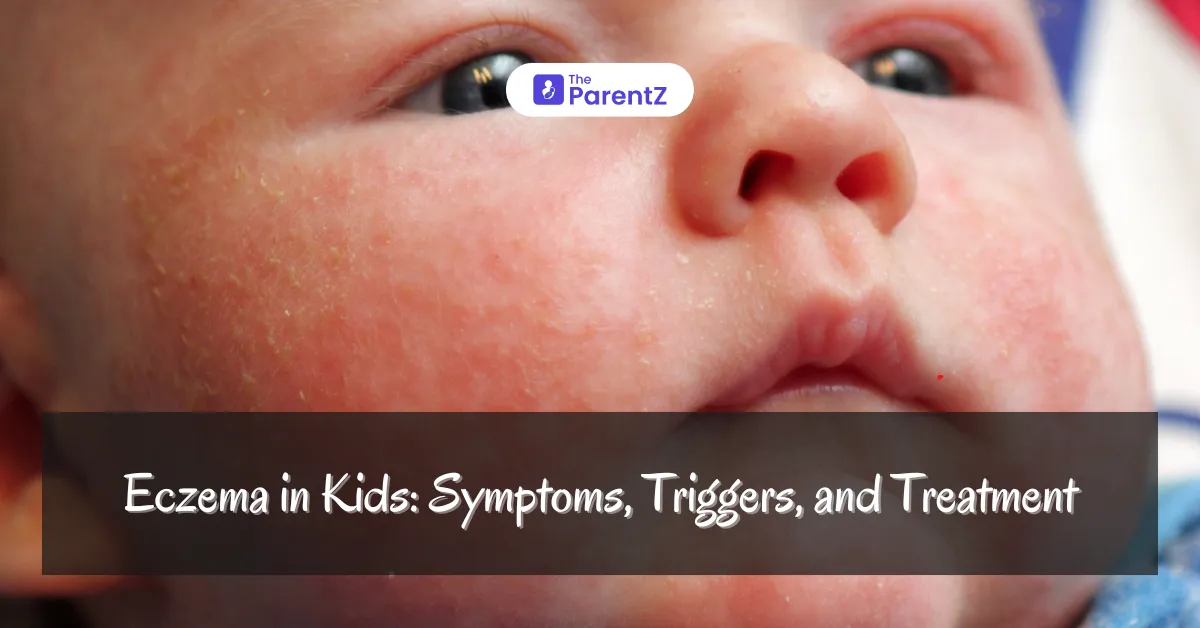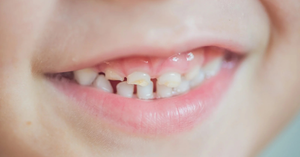Eczema, also known as atopic dermatitis, is a chronic skin condition commonly seen in children. It causes red, itchy, and inflamed skin. Although eczema is not contagious, its recurring nature can affect a child’s quality of life.
Key Facts About Eczema in Kids
• Prevalence: Affects 10–20% of children worldwide.
• Age of Onset: Most cases appear before age 5, with some as early as infancy.
• Chronic Nature: Symptoms often improve as children grow older, though some may continue into adulthood.
Symptoms of Eczema in Kids
• Red, itchy patches of skin, often on the face, elbows, knees, or scalp.
• Dry, flaky, or cracked skin that may bleed from scratching.
• Oozing or crusting in severe cases.
• Thickened, leathery skin from prolonged irritation (chronic cases).
Common Triggers for Eczema
1. Environmental Irritants:
• Dust mites, pollen, or pet dander.
2. Food Allergies:
• Eggs, dairy, peanuts, or soy may worsen symptoms in sensitive children.
3. Skin Irritants:
• Harsh soaps, detergents, or synthetic fabrics.
4. Weather Changes:
• Cold, dry winters or excessive sweating in summer.
5. Stress:
• Emotional stress may exacerbate flare-ups.
How is Eczema Diagnosed?
1. Clinical Examination:
• Based on appearance and location of skin lesions.
2. Allergy Testing:
• Identifies potential food or environmental triggers.
3. Skin Biopsy (rare):
• Used to rule out other skin conditions if necessary.
Treatment Options for Eczema in Kids
1. Skin Care Routine:
• Use gentle, fragrance-free moisturizers multiple times a day.
• Lukewarm baths with mild soaps to hydrate the skin.
2. Medications:
• Topical Steroids: Reduce inflammation during flare-ups.
• Antihistamines: Help control itching.
• Topical Calcineurin Inhibitors: Non-steroidal creams for sensitive areas.
3. Lifestyle Modifications:
• Avoid known triggers (e.g., allergens, irritants).
• Use cotton clothing and mild detergents.
4. Phototherapy:
• In severe cases, UV light therapy may help control symptoms.
Prevention Tips for Parents
• Maintain proper hydration of the skin with daily moisturizers.
• Use hypoallergenic skin and laundry products.
• Dress children in breathable fabrics like cotton.
• Keep fingernails short to prevent skin damage from scratching.
Support for Parents
Eczema can be physically and emotionally challenging for kids and their families. Educate your child about managing triggers, and seek support from healthcare providers or parent groups.
Explore related articles on the TPZ app, such as:
• “Managing Skin Conditions in Children Naturally.”
• “Food Allergies and Skin Health in Kids.”








Be the first one to comment on this story.